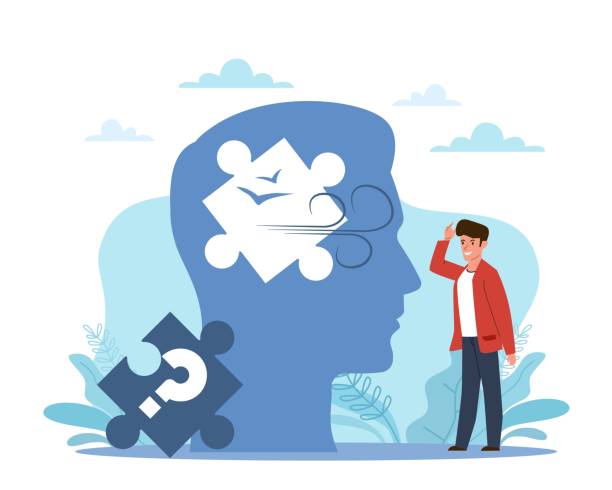A Quick Guide
Amnesia, a disorder characterized by memory loss, can take many different forms and have a variety of underlying causes. This article looks into the complexities of amnesia, discussing its various types, causes, and treatment options.
What is Amnesia?
Amnesia comes from the Greek word “amnēsía” meaning forgetfulness. It is a fascinating neurological condition that has captivated medical professionals, scientists, and storytellers alike. Amnesia captures our imagination and raises deep concerns about the nature of memory and identity, from the enigmatic stories of amnesiac protagonists in literature to the real-life problems of those dealing with memory loss.
Causes of Amnesia
Amnesia can result from a variety of causes, including traumatic brain injury, neurological illnesses, and psychological trauma. Understanding the underlying causes is critical for a correct diagnosis and effective treatment. Some common causes are:
Traumatic Brain Injury (TBI): Severe head trauma, such as a concussion or skull fracture, can alter normal brain function and cause this condition. The degree of the injury and the exact parts of the brain affected frequently influence the extent and duration of memory loss.
Neurological Disorders: Alzheimer’s disease, Parkinson’s disease, and epilepsy can all affect memory function, resulting in some degree of forgetfulness. These disorders frequently cause progressive damage to brain areas necessary for memory formation and retrieval.
Psychological Trauma: Intense emotional experiences, such as witnessing a traumatic event or being under substantial stress, can cause dissociative amnesia, in which people filter out upsetting memories as a coping mechanism. This type of amnesia is usually temporary, but it may persist in severe situations.
Substance Abuse: Chronic alcohol and drug abuse can impair memory function, resulting in a condition known as substance-induced amnesia. Prolonged substance use can impair cognitive processes and interfere with the brain’s capacity to encode and recall memories properly.
Watch: [How Do Concussions Cause Amnesia?]
Types of Amnesia with their Symptoms
Amnesia can take many different forms, each with its own set of traits and consequences for cognitive function. Understanding these types is critical for precise diagnosis and tailored treatment. Some typical categories are:
Transient Global Amnesia (TGA) is an uncommon yet unique type of amnesia characterised by sudden, brief memory loss that usually lasts a few hours. During an episode of TGA, people report an abrupt onset of significant anterograde amnesia, which is frequently accompanied by persistent questioning and confusion. The specific cause of TGA is unknown, but it is thought to be associated with transient ischemia episodes or migraines.
Retrograde amnesia occurs when people have trouble recalling memories from before the onset of this condition. This might range from recent events to distant recollections, depending on the condition’s severity and underlying reason. Retrograde amnesia is frequently associated with severe brain injury, stroke, or a neurological disorder.
Anterograde amnesia is the inability to acquire new memories after the onset of this condition. Individuals may retain memories from before the start of the condition, but they struggle to encode and remember new information. This type of amnesia is frequently connected with damage to the hippocampus and surrounding tissues, as seen in cases of temporal lobe injury or other neurological conditions.
The Case of Clive Wearing
One of the most prominent examples of profound amnesia is the case of Clive Wearing, a British musician and musicologist. After a severe viral infection in 1985 caused damage to his brain, Wearing developed profound amnesia, leading to the loss of a significant amount of his prior memories and making him incapable of forming new ones. Despite this painful loss, Wearing maintained his musical abilities and affection for his wife, Deborah. His story demonstrates both the selective nature of memory loss and the human spirit’s tenacity in the face of severe cognitive difficulties.
Treatment and Management
Managing amnesia requires a diverse strategy customized to the underlying cause and the patient’s specific needs. While there is no one-size-fits-all approach, a variety of strategies and interventions can help reduce symptoms and enhance quality of life. This may include:
Medication: When the condition is caused by an underlying medical illness, such as Alzheimer’s disease or epilepsy, medication may be recommended to alleviate symptoms and reduce the progression of the disease. Cholinesterase inhibitors, memantine, and antiepileptic medications are frequently used to improve cognitive function and prevent memory loss.
Cognitive Rehabilitation: Cognitive rehabilitation programs use a variety of approaches and exercises to improve memory functions. Memory training, cognitive-behavioral therapy, and compensatory approaches can all assist people deal with daily problems and improve their quality of life.
Psychotherapy: This can be quite helpful for those whose memory loss is caused by psychological trauma or dissociative amnesia. Cognitive-behavioral therapy (CBT), Eye Movement Desensitization and Reprocessing (EMDR), and narrative therapy all try to address underlying emotional difficulties while also facilitating memory retrieval.
Lifestyle Changes: Living a healthy lifestyle can help improve cognitive performance and overall well-being. Regular exercise, and a well-balanced diet rich in antioxidants and omega-3 fatty acids may help. Furthermore, proper sleep, stress management strategies, and social interaction all contribute to improved cognitive function and brain health.
Key Takeaway
Amnesia is a complex neurological illness that poses unique challenges for both affected people and their carers. Understanding the many causes, types, and treatment options available allows us to better help persons suffering from this condition and enable them to live fulfilling lives despite the problems that memory loss presents.



 Healing Your Inner Child: A Short Guide
Healing Your Inner Child: A Short Guide  What You Need to Know About Trauma & its effects
What You Need to Know About Trauma & its effects  Dealing with a Narcissistic Parent: Strategies and Support
Dealing with a Narcissistic Parent: Strategies and Support  Understanding the MBTI Personality Types
Understanding the MBTI Personality Types  Understanding the Big Five Personality Traits
Understanding the Big Five Personality Traits  Body Image: what it entails and how it affects you
Body Image: what it entails and how it affects you